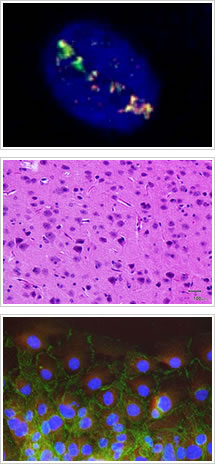In order to correctly understand the sensitivity and reactivity of cancer and the acute and chronic effects of normal tissue with heavy ion radiotherapy, it is necessary to have a spatiotemporal and integrated perspective based on knowledge of biological phenomena related to biochemistry, molecular biology, cell biology, physiology, anatomy, immunology, oncology and so on. This course aims to foster researchers who can contribute to the development of heavy ion radiotherapy based on an understanding of the various biological effects of heavy ion beams.
The course develops leaders with the ability to carry out original research as a matter of course, as well as insight based on a broad knowledge, the ability to implement interdisciplinary research, and the ability to play an active and cooperative role in the international arena, founded on a robust scientific and moral sense of value. Furthermore, the objective of the course is to provide an international program for developing leaders in heavy ion radiotherapy who aspire to contribute to global medicine and society.
 Through lectures, students gain an overview of radiation, the effects of radiation on human body and its medical application, and the principles of heavy ion beams. In addition, students learn about the basic biological phenomena of the human body, and gain a deeper understanding of the effects of heavy ion beams on these phenomena.
Through lectures, students gain an overview of radiation, the effects of radiation on human body and its medical application, and the principles of heavy ion beams. In addition, students learn about the basic biological phenomena of the human body, and gain a deeper understanding of the effects of heavy ion beams on these phenomena.
Radiobiology training aims to teach students the techniques for basic general experiments in radiobiology and to gain insights into the mechanisms behind DNA damage repair, changes in cell cycle, cell death and tissue damage due to radiation.
In the seminars, students study the latest literature in relevant fields, and gain a deeper understanding of advances in research into the biological effects of radiation in Japan and overseas, and future prospects of the field. Furthermore, students are taught experimental techniques for researching the biological effects of radiation and how to analyze test results, as well as how to summarize research findings in scientific papers. The main theme of the articles is research to obtain new insights into radiation, particularly the following matters relating to heavy ion beams.
Besides reading the latest literature in relevant fields, students also receive practical instruction in drafting research design related to heavy ion radiotherapy. Furthermore, students are taught experimental techniques for researching the biological effects of radiation and how to analyze test results, as well as how to summarize research findings in scientific papers.